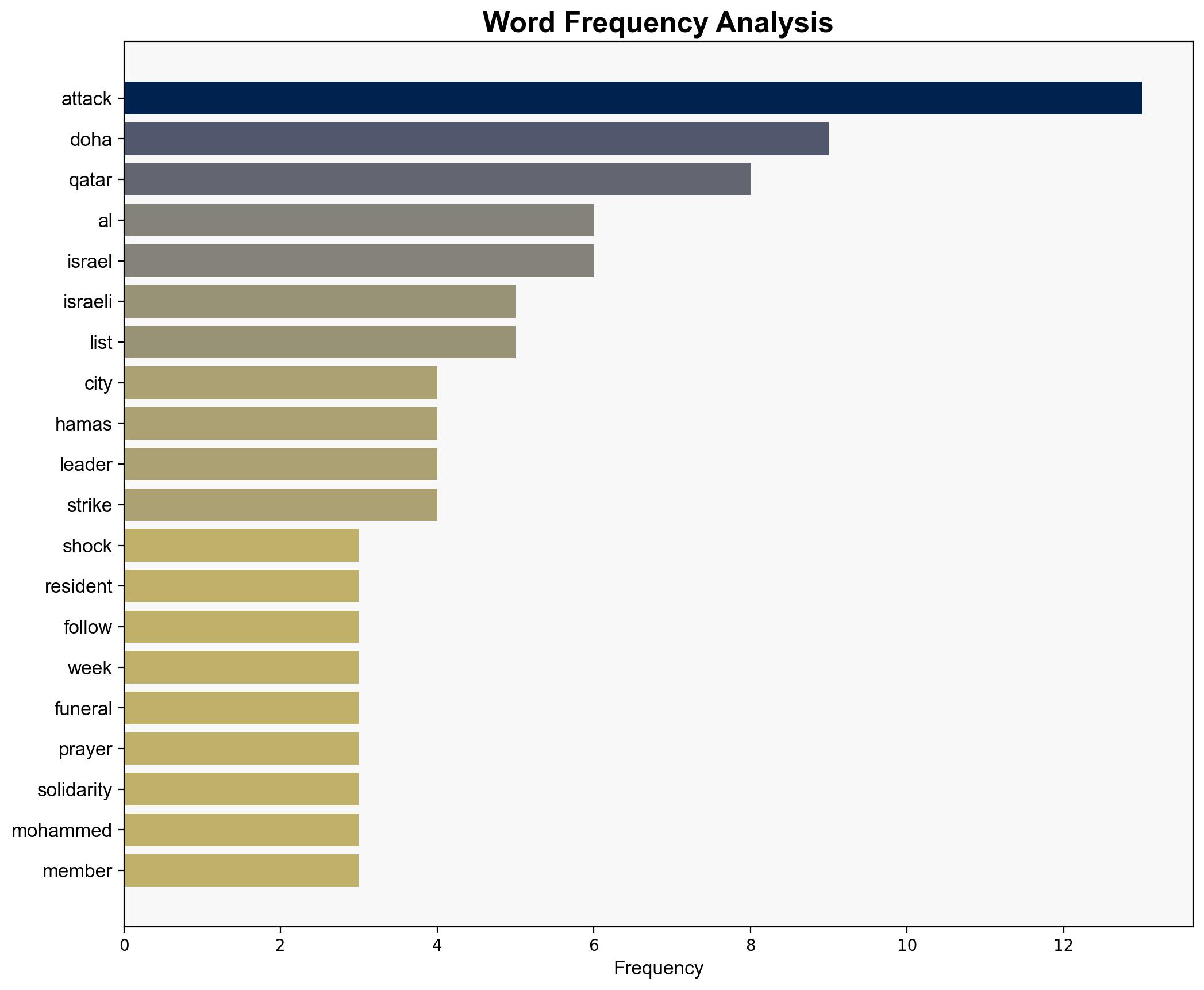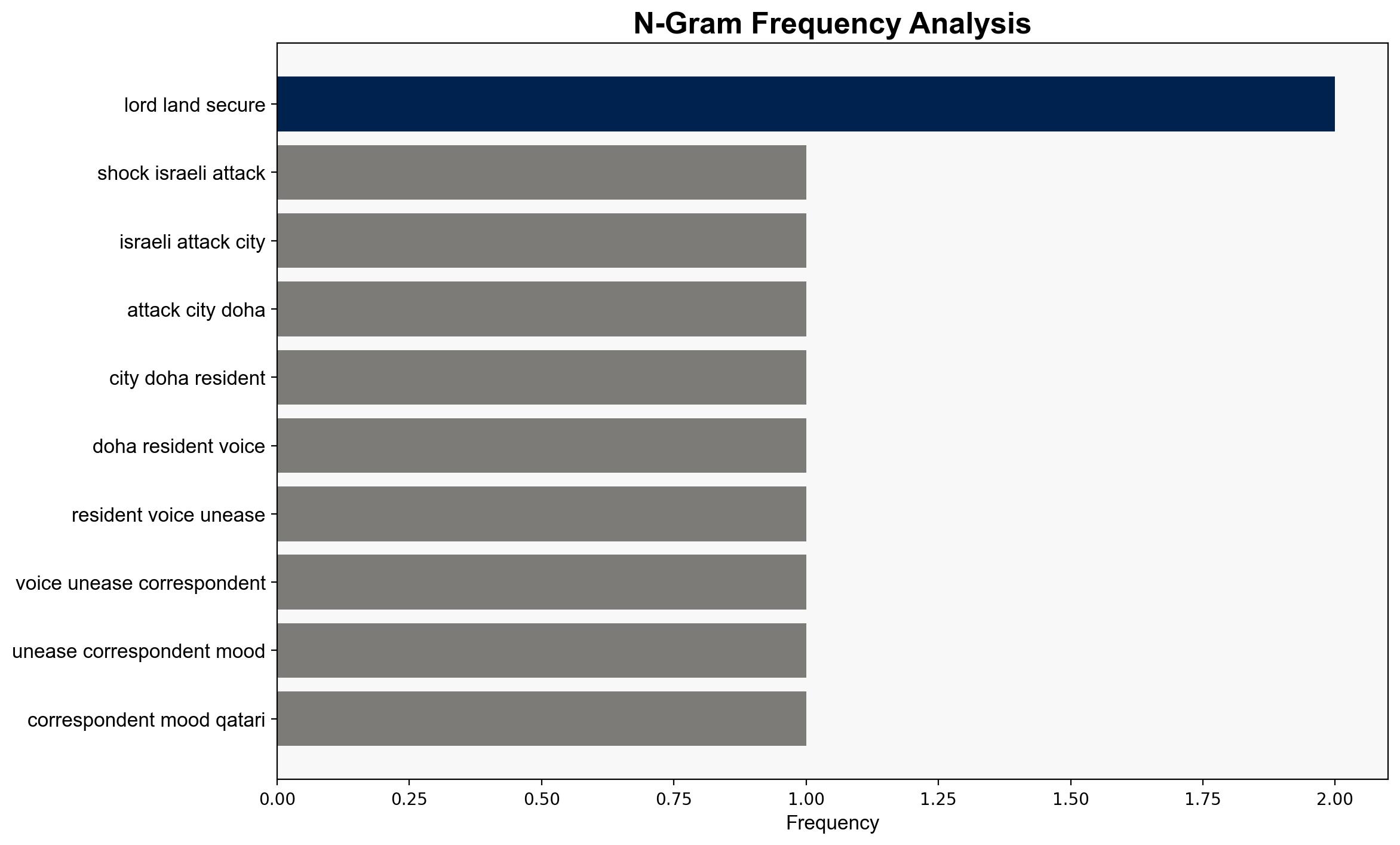After shock Israeli attack on their city Dohas residents voice unease – Al Jazeera English
Published on: 2025-09-12
Intelligence Report: After shock Israeli attack on their city Dohas residents voice unease – Al Jazeera English
1. BLUF (Bottom Line Up Front)
The most supported hypothesis is that the Israeli attack in Doha was a targeted strike against Hamas leadership, potentially aimed at disrupting ongoing ceasefire negotiations. Confidence in this hypothesis is moderate due to the complexity of regional dynamics and limited direct evidence. Recommended action includes enhancing diplomatic engagement with regional allies to de-escalate tensions and secure critical infrastructure.
2. Competing Hypotheses
1. **Hypothesis A**: The Israeli attack was a deliberate strike aimed at neutralizing Hamas leadership in Doha, intending to disrupt ceasefire negotiations and assert military dominance.
2. **Hypothesis B**: The attack was a miscalculation or intelligence failure, resulting in unintended escalation and collateral damage, with Israel potentially misjudging the impact on Qatari-Israeli relations.
Using the Analysis of Competing Hypotheses (ACH) 2.0, Hypothesis A is better supported by the presence of Hamas leadership in Doha and the strategic timing of the attack during ceasefire discussions. Hypothesis B lacks substantial evidence, as there are no clear indications of a miscalculation or intelligence failure.
3. Key Assumptions and Red Flags
– **Assumptions**: It is assumed that Israel had precise intelligence on Hamas leaders’ presence in Doha. Another assumption is that Qatar’s response will be measured to maintain regional stability.
– **Red Flags**: The lack of explicit Israeli acknowledgment of the attack raises questions about potential covert objectives. The presence of high-profile regional leaders in Doha post-attack suggests possible diplomatic maneuvering.
– **Blind Spots**: Limited insight into internal Israeli decision-making processes and potential undisclosed agreements between Qatar and Israel.
4. Implications and Strategic Risks
The attack could lead to heightened regional tensions, impacting diplomatic relations and potentially inciting retaliatory actions by Hamas or its allies. The incident may also influence public perception in Qatar, affecting internal security dynamics. Economically, the attack could deter foreign investment and tourism, while cyber threats may increase as entities seek to exploit vulnerabilities.
5. Recommendations and Outlook
- Enhance intelligence-sharing with regional allies to prevent further escalation.
- Strengthen cybersecurity measures to protect critical infrastructure.
- Engage in diplomatic dialogue to mediate tensions and promote stability.
- Scenario-based projections:
- **Best Case**: Successful mediation leads to de-escalation and resumption of ceasefire talks.
- **Worst Case**: Escalation results in broader regional conflict involving multiple state actors.
- **Most Likely**: Continued diplomatic efforts with sporadic tensions and isolated incidents.
6. Key Individuals and Entities
– Sheikh Tamim bin Hamad Al Thani
– Mohammed bin Zayed Al Nahyan
– Shehbaz Sharif
– Donald Trump
– Hamas leadership
7. Thematic Tags
national security threats, cybersecurity, counter-terrorism, regional focus




